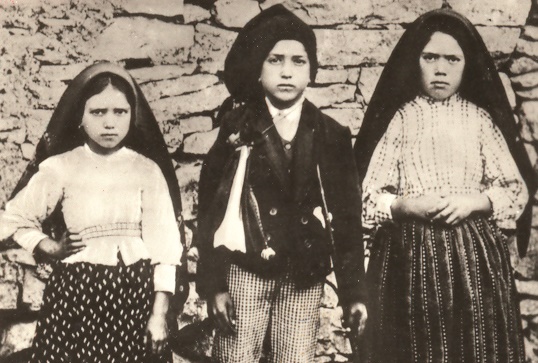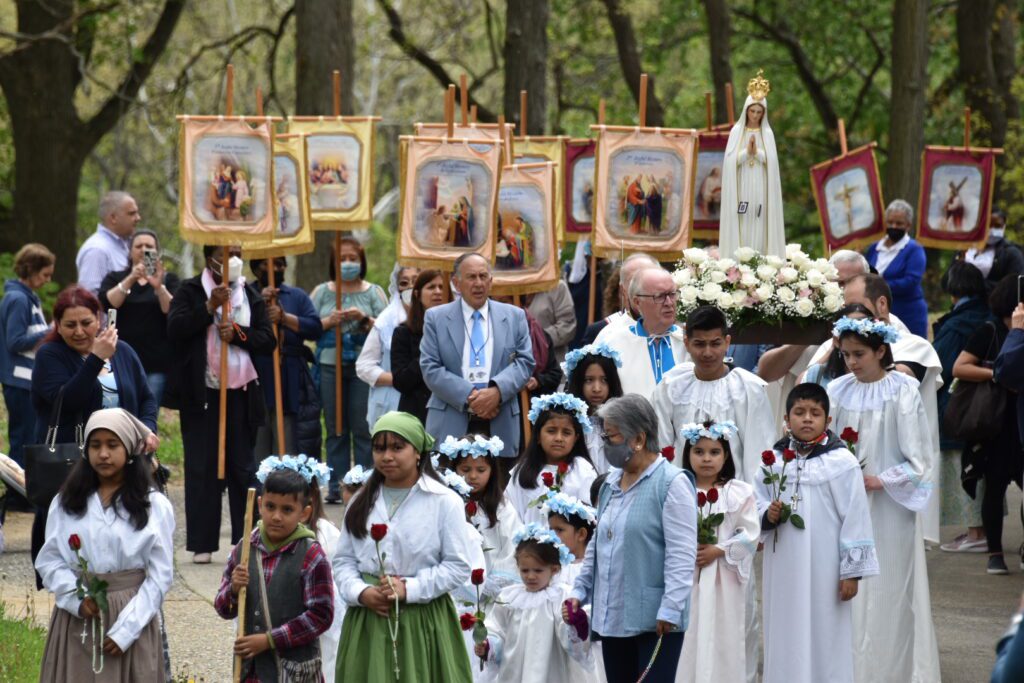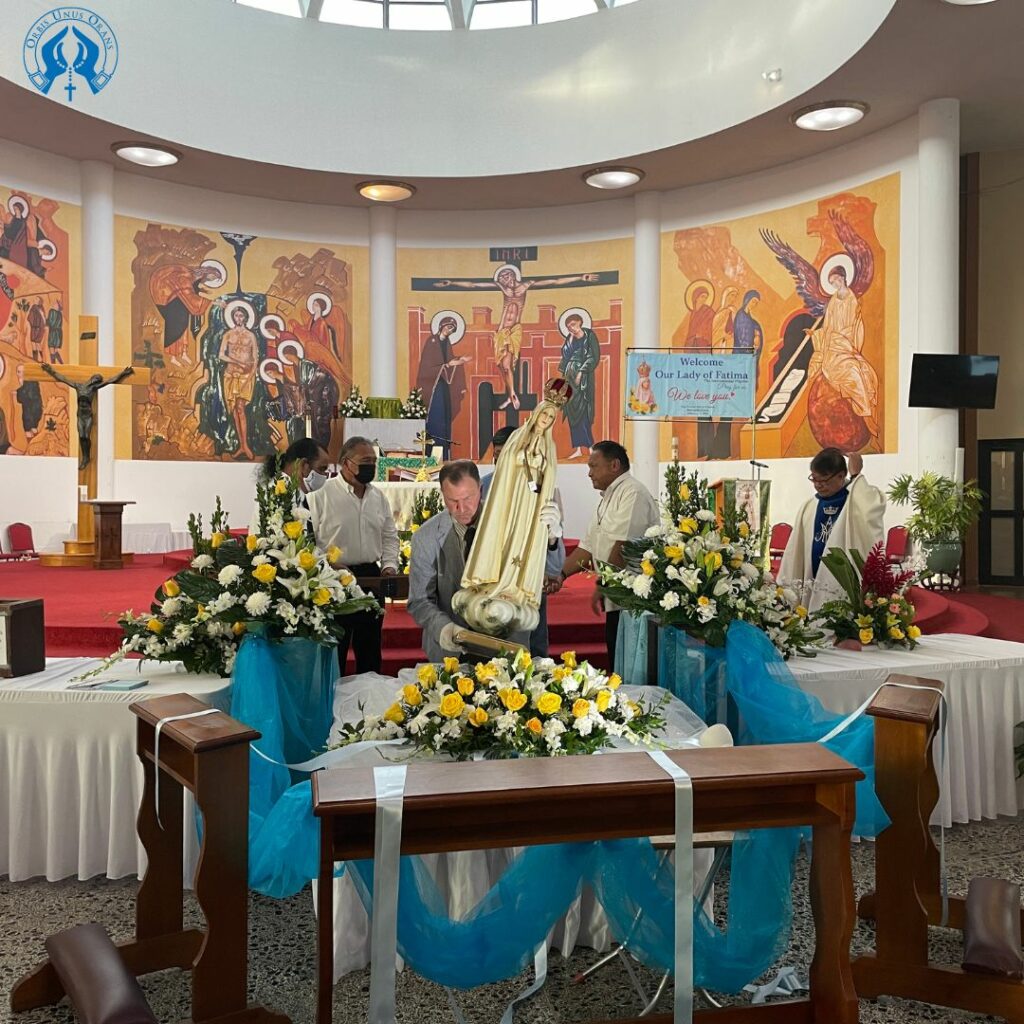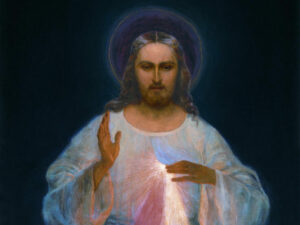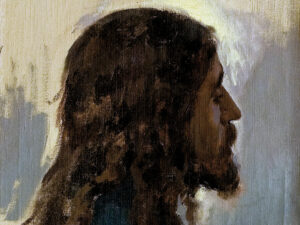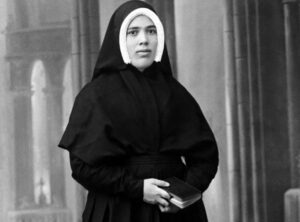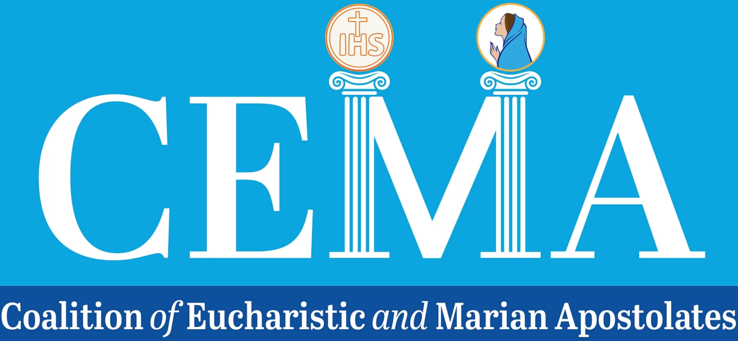By Barb Ernster –
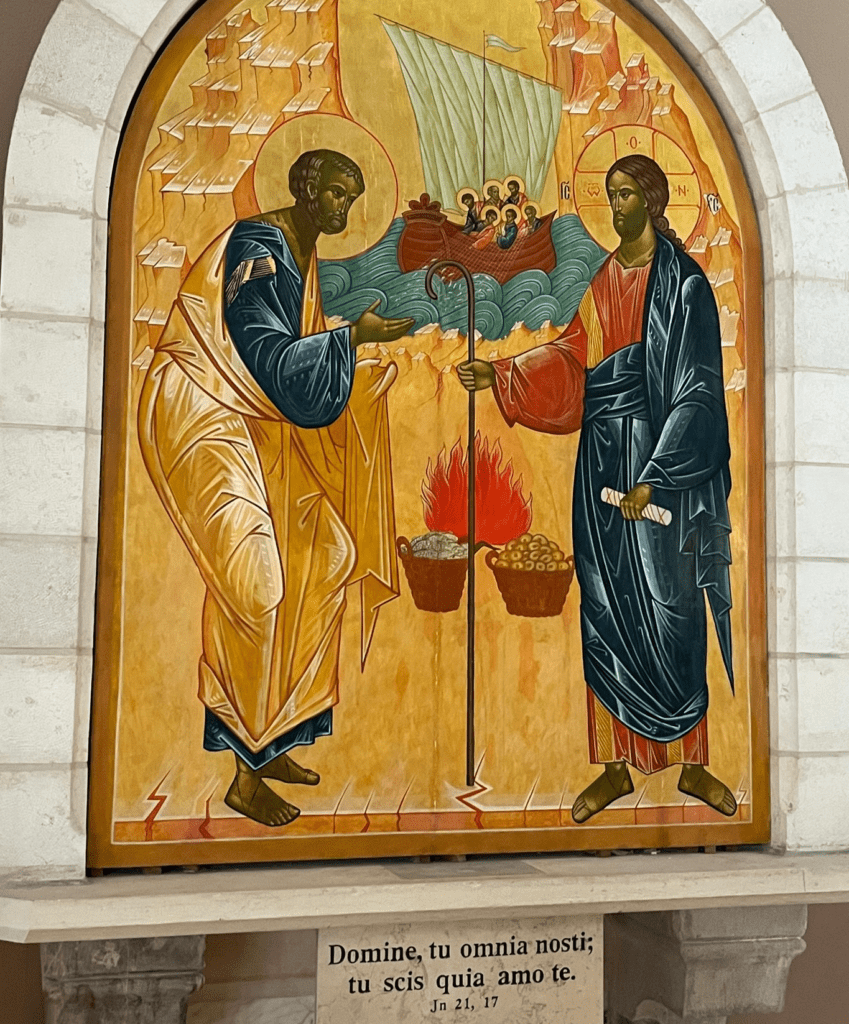
We tend to want to leave the job of evangelizing to those more learned, more articulate or who have the right personality to engage people.
St. Peter: The Rock
On a recent trip to the Holy Land, I was struck by how common the apostles were and how mundane and ordinary their lives. I was particularly inspired by St. Peter when I looked down at the ancient ruins of his home and saw the inner room that became a house church for early Christians, just steps away from the synagogue where Jesus delivered the Bread of Life discourse, and a few miles from the mount where He fed the five thousand.
St. Peter’s home afforded Jesus some protection from the authorities, a place of hospitality and rest where he could rejuvenate. It was just a simple little place, but it offered so much to the Son of God in that space and time.
I thought about the tremendous mission that was given to St. Peter when he was told he would be the Rock upon which Jesus would build His Church. I’m certain the breadth of this made no sense to him at the time as he juggled a fishing business, head of household duties and a growing ministry as a follower of Christ.
Had he been able to peer into the future and see all that was going to unfold, all that he would be tasked to accomplish, he likely would have run from the mission, so overwhelming it would have been, and he would have felt totally unqualified to carry it out. In fact, St. Peter struggled with doubts and human weakness throughout his mission, even to the point that he requested to be crucified upside down because he was not worthy to die as Christ did.
St. Paul: The Truth of Christ
St. Paul, who held a prestigious position as a Jewish scholar and defender of God, was thankfully thrown off his proverbial “high horse” and sought comfort only in the Truth of Christ after. Yes, he had a dramatic conversion experience, but reading his letters to the Christian communities, he struggled against the false prophets, the charismatic orators who presented half-truths, those proclaiming to be more qualified than he: “Who is qualified for this?” he asks the community in Corinthians (2 Cor 2:16).
He reiterates the struggles he endured to bring them the Gospel, persevering like a fool for Christ through imprisonments, beatings and brushes with death: “Five times at the hands of Jews I received forty lashes minus one. Three times I was beaten with rods, once I was stoned, three times I was shipwrecked, I passed a night and day on the deep; on frequent journeys, in dangers from rivers, dangers from robbers, dangers from my own race, …from Gentiles, …in the city, … in the wilderness…at sea…among false brothers; in toil and hardship, through many sleepless nights…hunger and thirst, frequent fastings…cold and exposure. And apart from these things, there is the daily pressure upon me of my anxiety for all the churches. …If I must boast, I will boast of the things that show my weakness.” (2 Cor 11:24-28, 30).
Had Paul seen this future laid out for him in his Damascus moment, he surely would not have taken the narrow road, but would have returned to his place of prominence and comfort.
Modern-Day Disciples like St. Peter & St. Paul
The same could be said for our modern-day disciples – St. Faustina, St. Teresa of Calcutta, St. John Paul II and Venerable Sister Lucia.
Facing the enormity of her mission, St. Faustina was told on many occasions that God would carry it out through her simplicity and obedience: “Do not fear anything. I am with you. These matters are in My hands and I will bring them to fruition according to My mercy, for nothing can oppose My will.” (#573) And: “Fear nothing; all difficulties will serve for the fulfillment of My will.” (#634)
Mother Teresa, when famously asked by a reporter how she could possibly be successful when there were more poor people in Calcutta than when she started her missionary work, replied: “God didn’t call me to be successful; He called me to be faithful.”
Venerable Sister Lucia could accomplish very little behind her convent walls on her own, but through obedience to God’s will and Mary’s guidance, the devotion to the Immaculate Heart has been established in the world.
The Common Denominator
The common denominator of all these people we honor today is that they persevered and just kept going. They understood that God was responsible for the results and that He was working in every moment and in every circumstance of their lives. They just needed to show up.
It is a great lesson against seeking fortune tellers and psychics, which really only serve our pride and amplifies our distrust in God – the original sin. It is also a lesson against probing too deep into Catholic “prophesies” and “crystal ball” locutions and messages that set our minds on what’s going to happen as opposed to what’s in front of us today.
God is ever-present and His work is always before us in the present moment. We are all called to great and heroic missions today in the mundane of our daily lives, in the scope of our need to grow daily in holiness and that blessed phrase, “Jesus, I trust in You.”
He doesn’t need to lay out the game plan, because it would scare us away and make us feel unqualified. His grace is sufficient.


Barb Ernster is the National Coordinator/Communications Manager/Editor for the World Apostolate of Fatima, USA.


